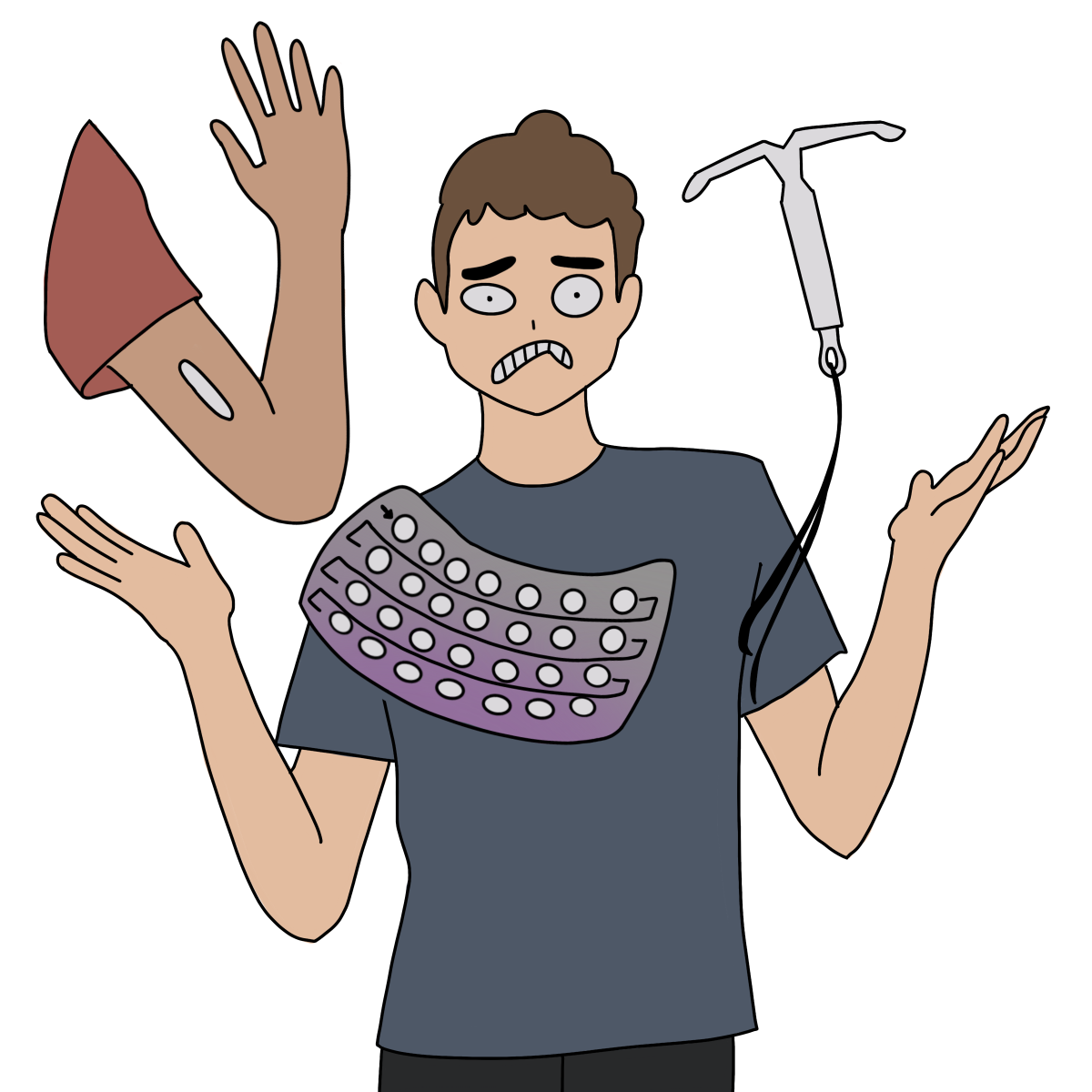It takes two to make a baby, yet the pressure of birth control and preventing pregnancy fall mostly on women.
For women, options range from IUDs, birth control pills, skin patches, injections, creams and even a rod you can get inserted in your arm. For men, there is currently only one main option: condoms.
Condoms are the simplest and most widely available birth control method and the most effective option in preventing sexually transmitted infections. However, some view condoms as unnecessary, with one in five men assuming that all sexually active women are on some form of birth control, according to a survey from the Pill Club.
“While not necessarily fair or equitable, I think the responsibility often falls on women because they are the ones who can get pregnant and will be the ones who have to navigate a pregnancy,” Summer Steib, director of the LSU Women’s Center, said.
I was in class last week when the topic of abortion came up, which could be another column in itself. The conversation led to almost everyone in the class brainstorming ways to prevent unwanted pregnancies.
One man raised his hand and suggested that someone should invent a device similar to an on-off switch that could be inserted into the human body. He did not elaborate on which gender the device was intended for, but what he suggested pretty much already exists.
His suggestions were met with groans from all the women in the room.
“Yeah, it’s called birth control,” they shouted.
One woman raised her hand and said that his comment just shows the lack of education and awareness around birth control. She was right.
In a Kaiser Family Foundation survey, one in five men said they know little to nothing about birth control options or the side effects that come with them.
Birth control pills require a prescription, and it can be difficult to find the right hormonal match for your body. Another survey from the Pill Club found that 52% of men did not even know that a prescription is required for birth control. On top of this already difficult process, even if you find your perfect birth control match, your insurance could refuse to pay for it.
Common side effects of birth control pills are weight gain, depression, nausea and headaches. And let’s not forget the extreme potential side effects such as blood clots.
Even with other forms of birth control like IUDs and the rod, you’re not escaping pain and agony.
A lot of women experience extreme pain while having an IUD inserted. A friend of mine was in so much pain she passed out during the procedure. Another friend was in bed for days struggling with cramps after the procedure. Even the rod a doctor can insert into your arm can lead to skin infections.
I decided to ask a male friend to name as many birth control forms as he could. After minutes of thinking, all he could come up with were birth control pills and condoms.
“Men should also be able to have conversations with partners about birth control and what shared responsibility looks like for pregnancy prevention,” Steib said.
If more men were educated on the topic, this could be a huge step in preventing unwanted pregnancies. School sex education programs, parents and even romantic partners should take steps to inform men.
But more importantly, men, especially sexually-active college men, need to make more of an effort to educate themselves about birth control.
Lura Stabiler is a 21-year-old journalism senior from Baton Rouge.





